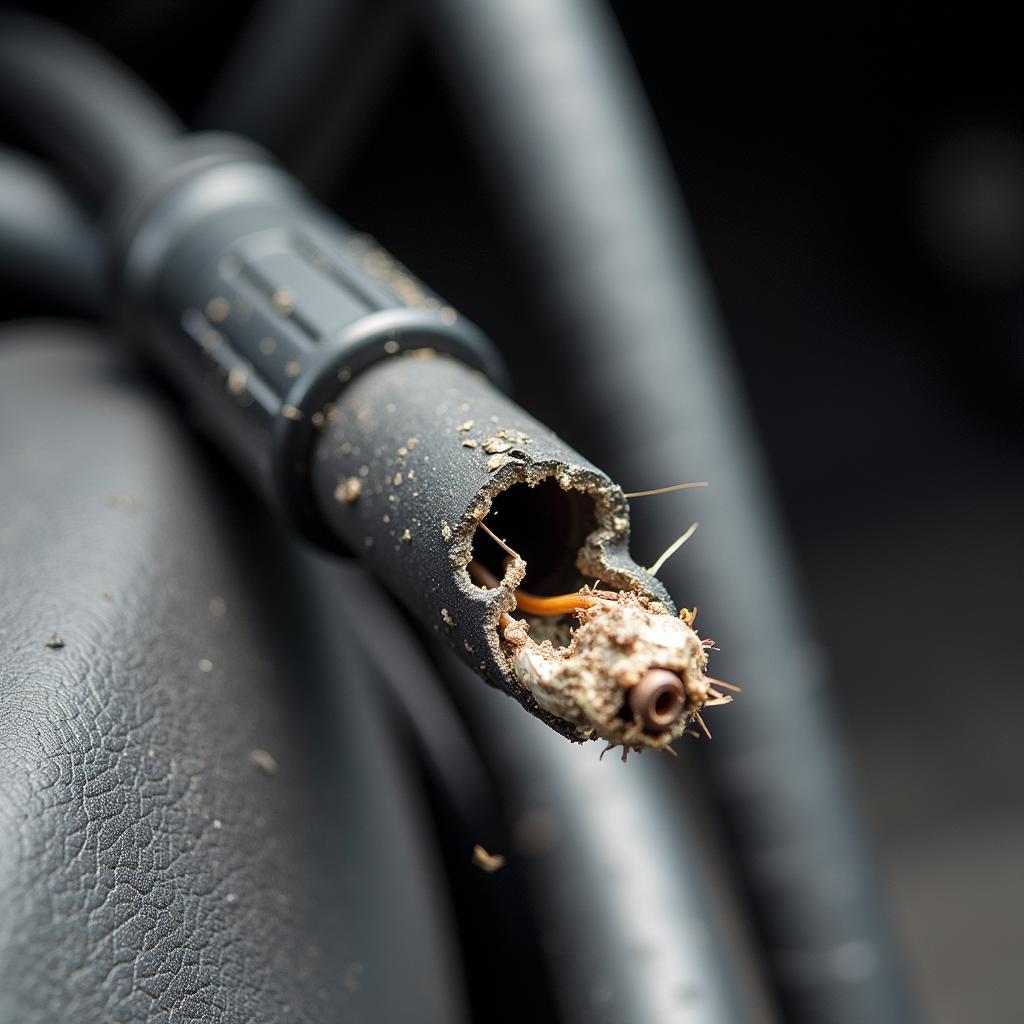That dreaded ticking sound when you start your car can be unsettling. Is it a minor annoyance or a sign of a serious issue? This article will cover the common causes of a car ticking when starting, how to diagnose the problem, and the best way to fix it. You’ll learn how to identify a simple fix you can do yourself versus a problem requiring a professional mechanic. Let’s dive in and silence that tick! We understand car troubles can be frustrating, so check out more information on getting your car fixed.
A ticking noise when starting your car can indicate various issues, from low oil pressure to faulty components within the engine. Pinpointing the source is key to a successful fix. We’ll equip you with the knowledge to troubleshoot and get your car running smoothly again.
Common Causes of Car Ticks When Starting
Several potential culprits can cause that annoying ticking sound. Here are the most common ones:
- Low Oil Pressure: This is the most frequent cause of ticking. When your oil level is low, it can’t properly lubricate the engine components, leading to metal-on-metal contact and that tell-tale tick.
- Worn Lifters (Tappets): Lifters are small hydraulic components that control the valves. Over time, they can wear down, causing a ticking noise, especially noticeable during startup.
- Exhaust Leak: A leak in your exhaust system can create a ticking sound that increases with engine speed. This often sounds more like a tapping or puffing sound.
- Faulty Fuel Injectors: A malfunctioning fuel injector can also create a ticking sound. This is usually accompanied by poor engine performance, rough idling, and decreased fuel efficiency.
- Serpentine Belt Issues: The serpentine belt powers various components, and a worn or loose belt can create a rhythmic ticking, especially on startup.
- Timing Chain or Belt Problems: A worn or loose timing chain or belt can create a ticking, rattling, or slapping sound. This can be a serious issue, potentially leading to engine damage if not addressed promptly.
After a thorough examination, it’s sometimes apparent that certain car problems that take awhile to fix are best left to professionals.
Diagnosing the Tick
Identifying the exact source of the ticking requires some detective work. Here’s a step-by-step approach:
- Check the Oil Level: Use the dipstick to verify the oil level. If it’s low, add oil and listen for any change in the ticking.
- Listen Carefully: Try to pinpoint the location of the tick. Is it coming from the top, bottom, front, or back of the engine?
- Use a Stethoscope (Optional): A mechanic’s stethoscope can help isolate the sound and narrow down the possibilities.
- Inspect the Serpentine Belt: Check for wear, cracks, or looseness.
- Check for Exhaust Leaks: Look for black soot or signs of damage around the exhaust manifold and pipes.
- Consider Professional Diagnostics: If you’re still unsure, a qualified mechanic can use specialized tools to diagnose the problem accurately.
 Mechanic Diagnosing Engine Ticking Noise
Mechanic Diagnosing Engine Ticking Noise
Don’t underestimate the expertise of a professional when it comes to complex car repairs. Learn more about who can fix my car.com.
Fixing the Ticking Noise
Once you’ve identified the source of the ticking, here’s how to fix some of the common issues:
- Low Oil: Add the correct type and amount of oil specified in your car’s owner’s manual.
- Worn Lifters: This typically requires replacement by a mechanic.
- Exhaust Leak: Repair or replace the damaged exhaust component.
- Faulty Fuel Injectors: Replace the faulty injector(s).
- Serpentine Belt: Tighten or replace the belt.
- Timing Chain or Belt: This is a complex repair best left to a professional.
What if the ticking persists after adding oil?
If the ticking continues after adding oil, the problem likely lies elsewhere, such as worn lifters or a timing chain issue.
Can I drive my car with a ticking noise?
Driving with a ticking noise can potentially worsen the problem and lead to more expensive repairs. It’s best to address the issue as soon as possible.
Knowing how much to fix car acceleration problems can be beneficial before proceeding with repairs.
Conclusion
A car ticking when starting can be a minor inconvenience or a sign of a more significant issue. By following the steps outlined in this article, you can diagnose the problem and take the appropriate action. Remember, regular maintenance is key to preventing many car problems. If you are unsure about any aspect of diagnosing or fixing the ticking noise, it’s always best to consult a qualified mechanic. We are always happy to help at AutoTipPro, so don’t hesitate to contact us at +1 (641) 206-8880 or visit our office at 500 N St Mary’s St, San Antonio, TX 78205, United States. Thank you for fixing my car is something we often hear, and we strive to provide the best service possible.
FAQ
- What is the most common cause of a car ticking when starting? Low oil pressure is often the culprit.
- Is it safe to drive with a ticking noise? It’s best to address the issue promptly to prevent further damage.
- How can I tell if the ticking is serious? If the ticking persists after adding oil or is accompanied by other symptoms, it’s best to seek professional help.
- Can I fix a ticking noise myself? Some issues, like low oil, can be easily fixed. Others require a mechanic.
- How much does it cost to fix a ticking noise? The cost varies depending on the cause.
- What should I do if I can’t identify the source of the ticking? Consult a qualified mechanic for a thorough diagnosis.
- How can I prevent ticking noises in the future? Regular maintenance, including oil changes, is crucial.







Leave a Reply